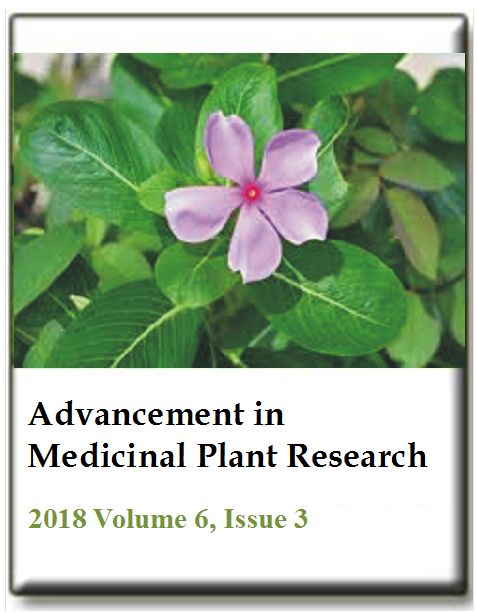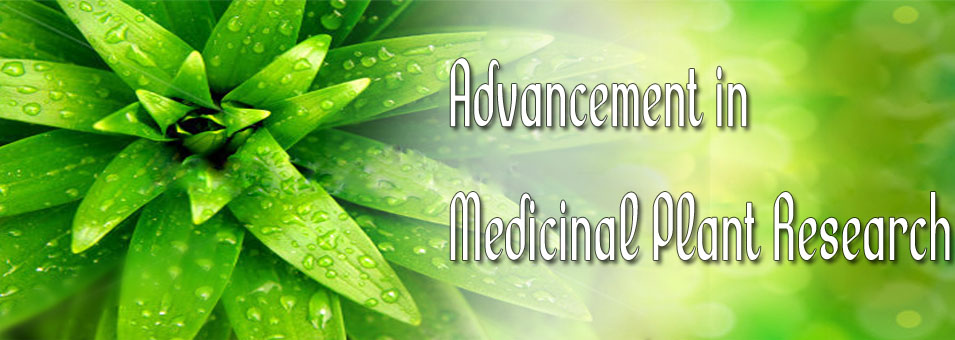Phytochemical study, antiplasmodial activity and acute toxicity of the aqueous extract of the stem bark of Alstonia boonei De Wild
Hermeline Ntalani, Mon-Sang César Akouala Bouanga, Gelase Fredy Nsonde Ntandou, Dieudonné Mumba Ngoyi, Papy Mandoko Nkoli, Ange Landela, Pascal Robin Ongoka and Jean-Maurille OuambaAdvancement in Medicinal Plant Research
Published: July 20 2018
Volume 6, Issue 3
Pages 33-39
DOI: https://doi.org/10.30918/AMPR.63.18.014
Abstract
Alstonia boonei De Wild is very cited in ethnobotanical surveys and in literature as an antimalarial plant. In the Republic of Congo, traditional therapists use the decoction of A. boonei stem bark to treat Malaria. To verify this information obtained from the traditional therapists, we conducted a phytochemical study, evaluated the antiplasmodial activity and the acute toxicity of the decoction of its stem bark. The phytochemical study revealed the presence of alkaloids, tannins, flavonoids and saponins. It also allowed the extraction of total alkaloids with a yield of 6.33 ± 0.02%. The antiplasmodial activity evaluated on the strain isolated from patients infected with Plasmodium falciparum was comparable between the decoction (IC50 = 111.2 μg.ml-1) and the total alkaloids (IC50 = 116.4 μg.ml-1). This activity is therefore due to alkaloids. The lethal dose 50% (LD50) is greater than 5000 mg.kg-1, the plant is not toxic.
Keywords: Alstonia boonei, decoction, phytochemistry, total alkaloids, antiplasmodial, acute toxicity.
Full Text PDFThis article is published under the terms of the Creative Commons Attribution License 4.0

